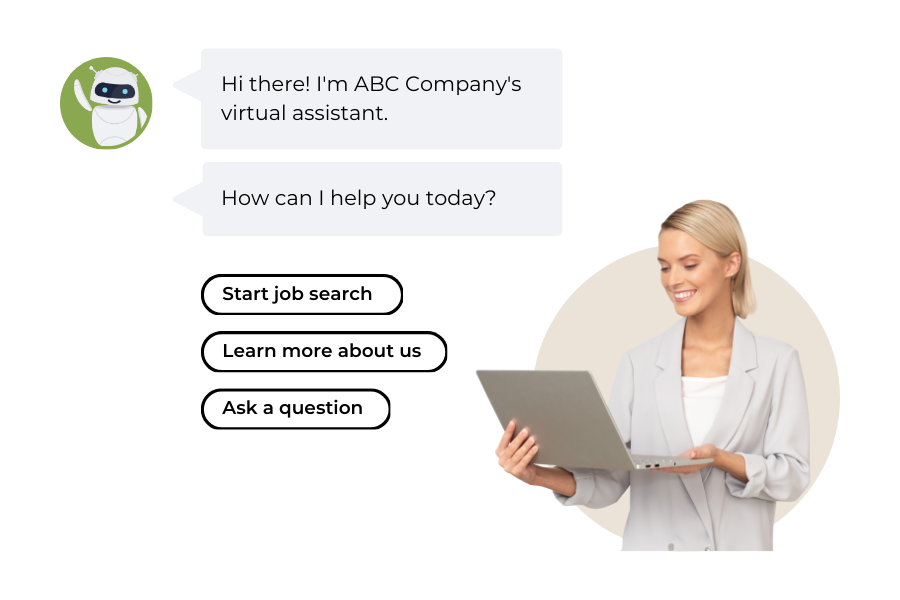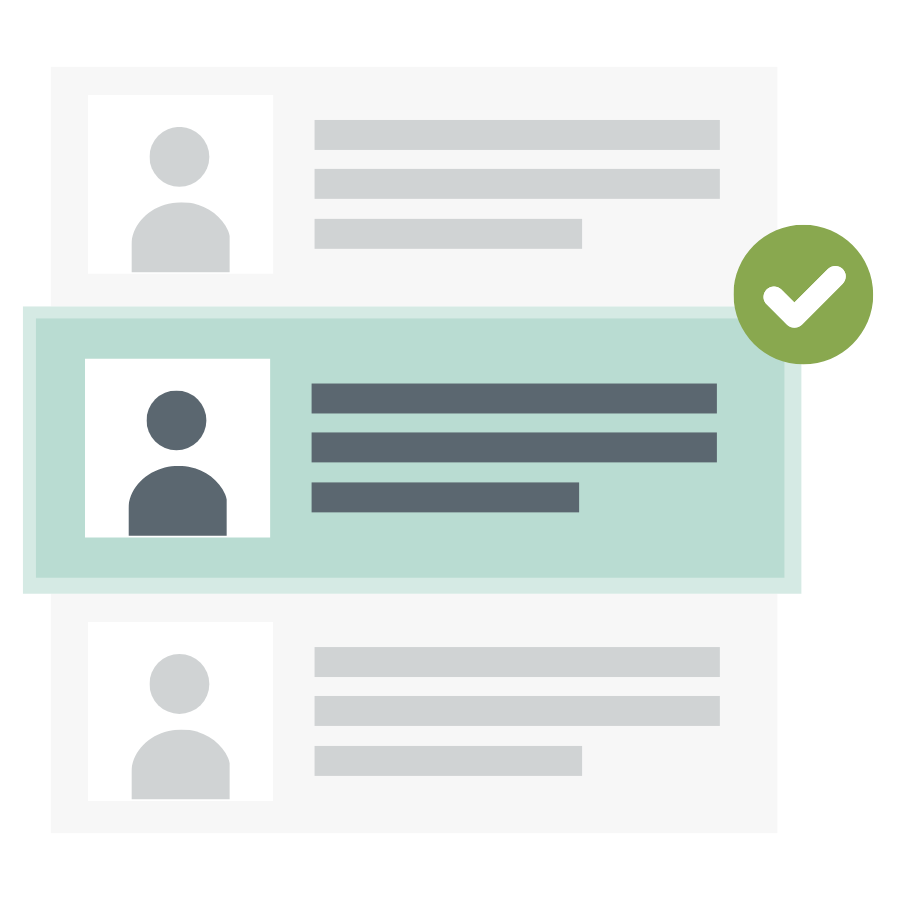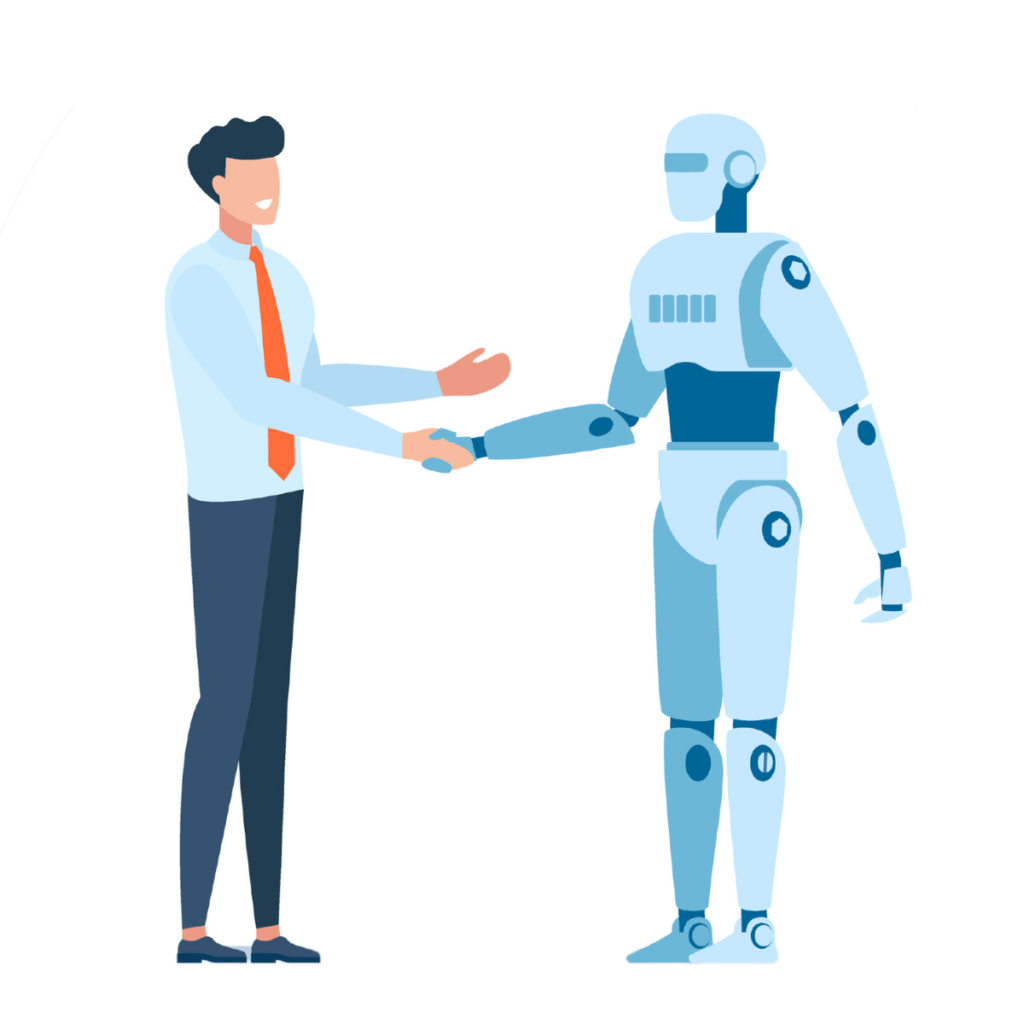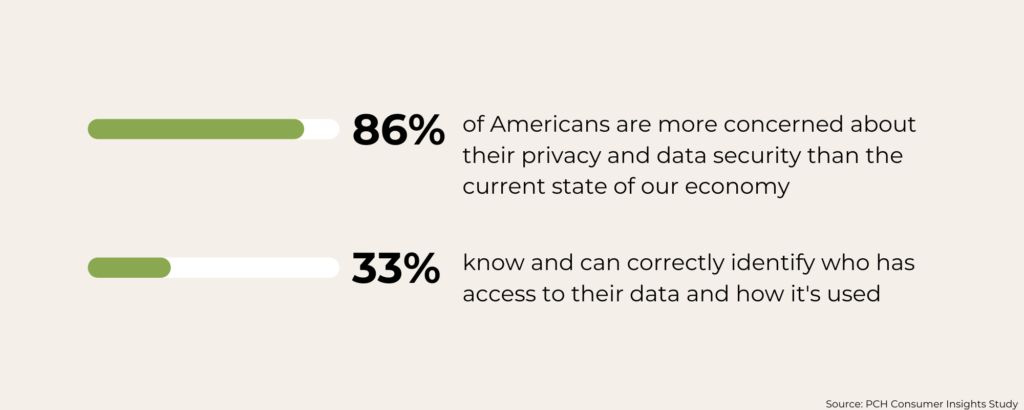What’s the first thing you think of when you hear the term artificial intelligence or AI recruiting?
You might imagine that artificial intelligence is a super-smart robot that will take over and wreak havoc on our planet. In reality, companies and consumers have used AI applications since the 1980s! Today, employers across the Twin Cities are increasingly embracing AI recruiting tools to hire talent faster, smarter, and with less bias.
In this blog, we’re going to cover:
- What AI recruiting is and how it works
- Why artificial intelligence won’t replace human recruiters
- The benefits of using AI recruiting
- How to overcome potential challenges
- And best practices to implement AI recruiting in your company
Let’s dive in.
What Is AI Recruiting?
![]()
AI-powered recruiting refers to the use of artificial intelligence technologies to automate, augment, and enhance recruitment processes. The main goal of AI recruiting is to hire the best talent faster, make informed decisions, and reduce unconscious biases.
How Does Artificial Intelligence Recruiting Work?
![]()
Artificial intelligence uses data, advanced algorithms, and computational power to take actions similar to humans. AI recruiting tools help hiring teams and HR professionals supplement their existing processes.

Early on, AI can answer common candidate questions instantly via chatbots. It can also help write job descriptions, though we recommend a human employee review the output to ensure accuracy before publishing online.
When applications roll in, AI can review high volumes of resumes, screen talent, and automatically schedule interviews and tests based on predefined criteria.
Will AI Replace Human Recruiters?
![]()
Nope! AI cannot and will not replace the essential role of human recruiters. Here’s why:
AI recruiting tools excel at streamlining high-volume tasks that don’t require a human touch — like screening applicants. But they lack the social skills, empathy, emotional intelligence, and negotiating abilities that make human recruiters invaluable, especially in tight talent markets.

There simply aren’t enough actively searching and qualified accounting and finance candidates to fill all open roles. Successful recruitment strategies in 2024 demand a more proactive, targeted approach to identify and attract the best talent.
Rather than only screening inbound applications, human recruiters leverage sourcing expertise to uncover great candidates across multiple channels. They also focus on building connections and relationships, eventually leading to the right hire. Furthermore, only a human can provide the insights and communication needed to guarantee talent accepts a job offer and walks through the door.
So, while AI is transforming parts of recruiting, it will never replicate the human touch recruiters provide.
It’s human + machine, not human vs. machine.
What Are the Benefits of Using AI in Recruiting?
![]()
Artificial intelligence is transforming recruiting by enabling teams to work smarter and faster. Leveraging AI provides several key benefits throughout the hiring process:
Automate Time-Consuming Tasks
Automating repetitive administrative tasks like scheduling, screening, and messaging, AI frees up time for hiring teams and recruiters to focus on higher-value activities like candidate engagement and evaluation.

Screen Candidates Efficiently
Intelligent algorithms can rapidly parse applicant materials and data to identify the most promising candidates who align with role requirements and might have otherwise been overlooked.
Reduce Hiring Bias
AI makes decisions based on skills, experience, and qualifications – not demographics or subjective factors (like tattoos or hair color), which are prone to unconscious human bias. With the proper protocols in place, AI recruiting can promote diversity and equal opportunity.
Enhance Candidate Experience
From chatbots answering questions to flexible automated interview options, AI provides a seamless experience that makes applying and interviewing more enjoyable for everyone.
How To Overcome Potential Challenges of AI Recruiting
![]()
AI-powered tools have many benefits, but like any technology, they also have challenges. Below are potential pitfalls to be aware of and how to avoid them.
Algorithm Bias
Like a child picking up bad habits from their parents, AI can (unintentionally) learn bias from data patterns that influence decision-making. Left unchecked, this could perpetuate human biases or even make them worse. However, with proper precautions, AI recruiting can actually help remove bias rather than amplify it.

Solution: Use diverse and inclusive training data sets so the AI doesn’t learn narrow-minded thinking. Establish a team of employees to audit the AI’s choices periodically. Give candidates easy ways to request human reviews of any AI screening decisions.
Privacy and Data Security Concerns
Our lives are increasingly becoming intertwined with AI, and people are (understandably) distrustful of this technology. According to a PCH Consumer Insights study, 86% of Americans are more concerned about their privacy and data security than the current state of our economy. Yet, only 33% of Americans can correctly identify who has access to their data and how it’s used.
Solution: As with anything AI-related, ensure ethical practices around data privacy and security and take steps to minimize algorithmic bias. Be transparent with applicants about data storage, security, and usage to maintain their trust in your company.
Maintaining a Personalized Experience
With countless AI applications at our fingertips, hiring teams and HR professionals could easily become over-reliant on these technologies. This can make the candidate experience feel less personalized and cold.

Solution: Find a balance between artificial intelligence and the human touch. Use AI tools for routine, admin-type tasks and ensure candidates have access to and connect with human employees at some point in your hiring process.
Data Quality
Artificial intelligence is only as good as the data you give it. Poor-quality, incomplete, or biased data will deliver mediocre results. In comparison- high-quality, complete, and unbiased data will provide powerful results.

Solution: Uphold data quality by regularly auditing it against standards and cleaning it to ensure reliability and consistency.
Implementation Costs
“Companies are under tremendous pressure to incorporate AI and generative AI [GenAI] to maintain their edge in a competitive landscape,” Claire Bramley, CFO of Teradata, told CFO. However, integrating new technology can be expensive and time-consuming for any organization. Bramley added: Given macroeconomic uncertainty, finance chiefs must ensure the right investments are made in priority areas like AI without “significantly increasing their cost profile.”

Solution: Develop a phased rollout plan spanning 2-3 years to absorb costs over time rather than all at once. We recommend starting with high-impact projects where AI can deliver significant ROI.
Best Practices To Implement AI Recruiting
![]()
Rolling out AI recruiting tools for the first time can feel overwhelming. Where do you start? How do you ensure you see results? Follow these best practices to develop a robust implementation plan:
- Review your current hiring process. Where are the pain points AI could alleviate? What steps should remain manual? You must assess each phase to determine where AI tools will best integrate.
- Provide training for staff. Since this technology is new for most employees, focus heavily on change management and training. Don’t just dump the AI tools in their laps – provide hands-on training so they become experts leveraging AI alongside traditional techniques.
- Begin with entry-level openings. When starting, target high-volume recruiting needs with more clear-cut assessment criteria. We recommend starting with entry-level roles before expanding to specialized senior hires.
- Expect ongoing assessments. No AI platform will be perfect out of the box. Plan for ongoing reviews of the AI’s decision-making and have employees consistently provide feedback to enhance performance over time. Like any new hire, the AI will need coaching to reach its full potential.
The bottom line is that when companies start small, maintain human oversight, and invest in change management, they’ll see the maximum value from AI tools.

Final Thoughts
![]()
The future of recruiting is undeniably human AND machine.
Companies have an exciting opportunity to hire smarter, faster, and more efficiently with the help of AI-powered recruiting tools. When implemented thoughtfully, these technologies allow human recruiters, hiring teams, and HR professionals to focus on what matters most – bringing top talent through the door.


